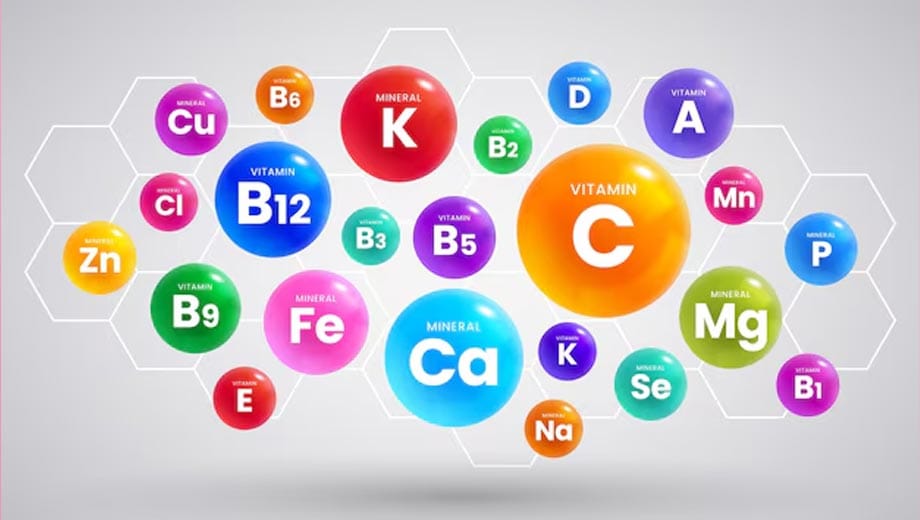Vitamins are essential for our health, and in particular for the health of our skin. They provide our bodies with the nutrients needed to maintain healthy, radiant, beautiful skin. However, some people suffer from vitamin deficiencies, which can have harmful consequences for their skin. In this article, we'll explore the dangers of vitamin deficiency for the skin and how to remedy the situation.
What is a vitamin deficiency?
A vitamin deficiency occurs when our body does not receive enough vitamins to function properly. There are 13 different vitamins, each with its own role in our bodies. Vitamins A, B, C, D and E are particularly important for the health of our skin. A vitamin deficiency can be caused by an unbalanced diet, malabsorption, a health problem or exposure to toxins.
The dangers of vitamin deficiencies for the skin
Impact on cell renewal
Vitamins play a crucial role in skin cell renewal. They enable the skin to regenerate and produce new cells, keeping skin healthy and young. If our bodies don't get enough vitamins, the cell renewal process can be disrupted, resulting in dull, dry, ageing skin.
Increased risk of skin diseases
Vitamin deficiencies can also increase our risk of developing skin diseases such as dermatitis, eczema and psoriasis. Studies have shown that vitamins A and D are particularly important in combating these skin conditions. A vitamin deficiency can therefore make the skin more sensitive and prone to irritation and redness.
Slower healing
Vitamins are also essential for healing wounds and skin imperfections. Vitamin C stimulates the production of collagena protein that helps heal and restore damaged skin tissue. A deficiency in vitamin C can therefore cause the skin to heal more slowly, which can lead to more visible scars.
Premature ageing of the skin
We know that vitamins are important for keeping skin young and radiant. A vitamin deficiency can therefore have a negative effect on skin ageing. Free radicals, unstable molecules that accelerate skin ageing, can form in the absence of antioxidant vitamins such as A, C and E. This can lead to the appearance of wrinkles, fine lines and age spots more quickly than expected.
How to combat vitamin deficiencies for healthy skin
The best way to combat vitamin deficiencies for healthy skin is to follow a strict diet. balanced diet and varied. Fruit and vegetables are an excellent source of vitamins, especially citrus fruit, spinach and carrots, which are rich in vitamins A and C. Dairy products, nuts and seeds are also good sources of vitamins for maintaining healthy skin.
Food supplements
If you think you may be suffering from a vitamin deficiency, you could consider taking food supplements to make up for any deficiencies. However, it is important to consult a health professional before starting any dietary supplement to ensure you are taking the right amount and type of vitamins for you.
Use of topical vitamin products
As well as a balanced diet, using topical products containing vitamins can help improve skin condition. Serums and creams containing vitamins A, C and E can provide extra nutrition to the skin and stimulate cell renewal.
Conclusion
A balanced diet rich in vitamins is essential for healthy skin. Vitamin deficiencies can have a number of negative effects on the skin, such as premature ageing, slower healing and an increased risk of skin diseases. So it's important to stay aware of our vitamin intake and take steps to maintain a healthy skin. healthy, radiant skin. Don't forget to consult a health professional before changing your diet or starting any dietary supplements. Nourish your skin with vitamins for healthy, radiant skin!
Liposomal vitamin C
Liposomal vitamin C is an encapsulated form that improves the absorption and stability of vitamin C. It promotes better antioxidant protection, supports the immune system and improves skin health without undesirable gastrointestinal effects. An ideal solution for highly bioavailable vitamin C.











